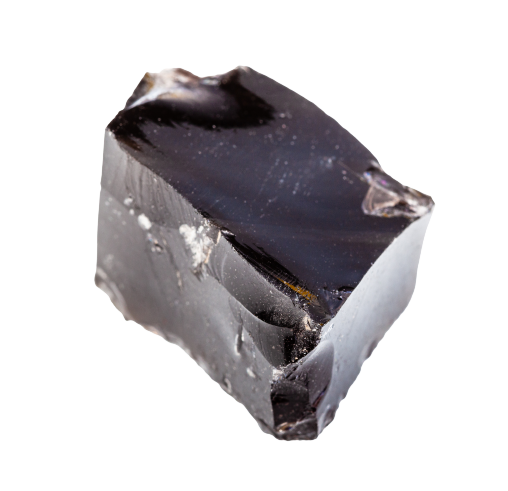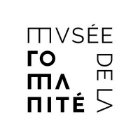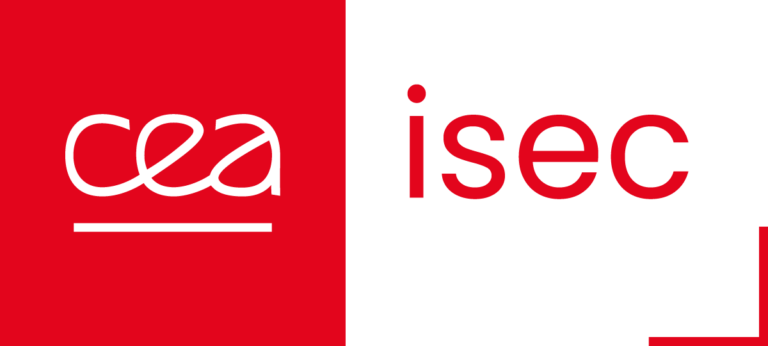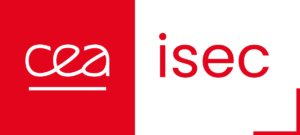Save the date

September 25-29th 2023
3rd Summer School on nuclear and industrial glasses for energy transition
- End of February: Abstract submission opening (Poster presentations only*)
- April 3, 2023: Abstract submission deadline (Poster presentations only*)
- May 5, 2023: Abstract notification of acceptance
- March 15, 2023 - May 31, 2023: Early Bird Registration
*All participants are required to submit their abstract in English. All abstracts must be submitted via the conference’s online system. Maximum length of an abstract: 2 pages.


Organisator: ISEC - Institut des sciences et technologies pour une économie circulaire des énergies bas carbone
Local organizing & scientific committees: Sophie Schuller, Kahina Hamadache, Frédéric Angeli, Stéphane Gin, Jean Marc Delaye, Isabelle Ribet, Paul A. Bingham, Ashutosh Goel, Albert Kruger, John McCloy, Irene Peterson, Richard Pokorny, John Vienna
Sumglass 2023
Sumglass 2023 aims to bring together the research and industrial communities of the glass sector.
This summer school will allow to share the issues and methodologies developed on the vitrification of nuclear wastes and on the manufacture and properties of industrial glasses. New advances in terms of modeling and simulation developed on spatial and temporal scales will be discussed, both to follow glass vitrification process and the behaviour of glass during its life cycle.
International specialists will present reviews or keynotes. A call for abstracts will be proposed for a poster session covering all the topics addressed in the summer school.
Context
The R&D issues raised by the nuclear industry have made it possible to meet major challenges, particularly in the field of radioactive waste vitrification.
The unique know-how developed over more than 60 years in various nuclear waste vitrification technologies and in the formulation, physical and chemical properties and long-term behaviour of glasses opens up a major field of innovation to achieve the carbon neutrality objectives (wind, solar, hydraulic, hydrogen, nuclear) of the energy transition. Whether in the nuclear sector or in the glass industry, R&D is focused on optimizing the quality of glass products, matching their behaviour to their conditions of use, while minimising the environmental impact over their entire life cycle. It is crucial to better understand their properties, but also to be able to minimize waste and the use of primary resources without degrading product properties.
Numerous projects are being carried out, both on the experimental and modelling levels, in a very wide range of applications (tableware, flat glass, glass packaging, nuclear glass, glass fibers for reinforcement or insulation, bioglass…). The main issues related to modeling and simulation approaches will be discussed during this summer school.
Topics
- Vitrification technologies and glass waste form (Sept. 25)
- Simulation/modeling of vitrification process (Sept. 26)
- Thermodynamic and chemical mechanism modeling of glass and melt (Sept. 27)
- Glass alteration (Sept. 28)
- New glasses for energy transition and new advance on high temperature characterization (Sept. 29)
Program
Vitrification technologies and glass waste form
Chair: Paul Bingham
- 8h30-9h00: Registration - coffee
- 9h00-9h30: SummerSchool introduction - CEA/ISEC + DES
- 9h30-10h00: Sumglass objective at a glance
Waste vitrification technologies
- 10h00-10h45: High level waste & vitrification technologies - Régis Didierlaurent (ORANO)
- 10h45-11h15: Coffee break
- 11h15-12h00: Low level waste and vitrification technologies - Albert Kruger (US Dep. of Energy: DOE)
- 12h00-12h40: Industrial mineral wastes vitrification and technologies
- 12h40-13h20: Thermal Plasma Treatment of Dry Waste from Nuclear Power Plants - Kai Xu, Wuhan University of Technology
- 13h20-14h30: Lunch time
Glass waste form and issues
- 14h30-15h10: Methodology applied to nuclear and industrial glass waste form - John Vienna (Pacific Northwest National Laboratory)
- 15h10-15h50: Glass waste form developement for HLW - Ashutosh Goel (RUTGERS University)
- 15h50-16h30: Glass waste form developement for Low activity Waste - John McCloy (Washington State University)
- 16h30-17h10: Industrial glass waste form for industrial wastes
- 17h10-17h40: Coffee break
- 17h40-18h20: Glass recycling, decarbonatation issue and societal impact
- 18h20-19h00: Teasing poster
Simulation/modeling of vitrification process
Chair: Richard Pokorny
- 8h30-8h45: Introduction : Modeling approaches developed at different scales for different applications - Sophie Schuller (CEA ISEC)
CFD simulation of vitrification process
- 8h45-9h15: Numerical modeling developement of Cold Crucible Induction Melting - Emilien Sauvage (CEA ISEC)
- 9h15-9h45: Numerical modeling of Joule Heat Ceramic Melter - Donna Guillen (INL)
- 9h45-10h15: Furnace modelling (CFD) tool for detailed modelling of physical and chemical processes in complex shapes - Corine Claireaux (CELCIANS)
- 10h00-10h45: Numerical modeling of industrial glass furnace - Miroslav Polak (Glass Service)
- 10h45-11h15: Coffee break
Modeling of Physical-chemical properties of glasses
- 11h15-11h45: Modeling of glass properties and their effect on glass production rate in an electric melter - Pavel Hrma (PNNL)
- 11h45-12h15: Statistical methods and data-driven models to predict glass melt properties - Damien Perret (CEA ISEC)
- 12h15-12h45: Machine learning applied to predict glass properties ? - Anoop Krishnan (Indian Institute of Technology)
- 12h45-15h00: Poster session 1 & buffet
- 15h00-15h30: Conversion degree and heat transfer in the cold cap and their effect on glass production rate in an electric melter - Pavel Ferkl (PNNL)
- 15h30-16h00: Calcul batch to melt energy - Corine Claireaux (CELCIANS)
- 16h00-16h30: Modeling foaming in industrial glasses - Franck Pigeonneau (CNRS Nice)
- 16h30-17h00: Modeling heat tranfer in foam*
- 17h30-18h00: Effect of reducing agents on the redox conditions during melting, Tc/Re retention, and off-gas evolution - Jaroslav Klouzek (University Prague)
Thermodynamic and chemical mechanism modeling of glass and melt
Chair: John McCloy
Modeling thermodynamic of glass and melt
- 8h30-9h15: Thermodynamic modeling of glasses and glass forming liquids - Pierre Benigni (University Aix Marseille)
- 9h15-9h45: CALPHAD modeling to support thermochemistry of the glass - Stéphane Gossé (CEA ISAS)
Modeling chemical mechanisms
- 9h45-10h15: Modeling diffusion in melt - Emmanuelle Gouillart (Saint Gobain)
- 10h15-10h45: Modeling the kinetic of crystallization in the melt - McKensie Matthew E
- 10h45-11h15: Coffee break
- 11h15-11h45: Modeling crystallization and the rheologycal impact in nuclear glasses - Elise Regnier (CEA ISEC)
- 11h45-12h15: Modeling phase separation in the melt - Alain Cartalade (CEA ISAS)
Overwiew on glass alteration
- 12h15-12h45: Environnemental issues of nuclear glasses and solutions - Stephan Schumacher (ANDRA)
- 12h45-13h45: Lunch box - Free pic nic
- Free time and proposed activities
Glass alteration
Chair: John Vienna
Overwiew on glass alteration
- 8h30-9h00: Environnemental issues of industrial glasses - Xavier Capilla (FEDE verre)
- 9h00-9h30: Aqueous dissolution rate of nuclear waste glasses as a function of environmental parameters - Yaohiro Inagaki (Kyushu University, Japan)
- 9h30-10h00: Alteration of nuclear glasses - Stéphane Gin (CEA ISEC)
- 10h00-10h30: Aqueous dissolution rate of nuclear waste glasses as a function of environmental parameters Yaohiro Inagaki (Kyushu University, Japan)
- 10h30-11h00: Coffee Break
- 11h00-11h30: Alteration under atmospheric conditions - Aurélie Verney Carron (University Paris Créteil)
- 11h30-12h00: Atmospheric hydration of float glass - Sophie Papin (Saint Gobain)
- 12h00-12h30: Alteration of bioglasses - Delia Brauer (Otto Schott Institute of Materials Research)
- 12h30-15h00: Poster session 2 & buffet
Modeling approaches
- 15h00-15h15: Short introduction - Jean Marc Delaye (CEA ISEC)
- 15h15-15h45: DM/ ab initio modeling hydrate system - Jincheng Du (University of North Texas)
- 15h45-16h15: Atomistic simulation of glass alteration - Jean Marc Delaye (CEA ISEC)
- 16h15-17h00: Machine learning for atomistic and spectroscopic modeling of glasses Thibault Charpentier (CEA DRF)
- 17h00-17h30: Coffee break
- 17h30-18h00: Geochemical modeling of glass alteration - Pierre Frugier (CEA ISEC)
- 18h00-18h30: Modelling approaches applied to mineral alteration - Damien Daval (CNRS - LHyGeS)
- 18h30-19h00: Topic to be confirmed
- 20h00-23h00: Banquet
New glasses for energy transition and new advance on high temperature characterization
Chair: Ashutosh Goel
New advance on glass development for energy transition
- 8h30-9h00: New advance in Glass fiber for energy transition - Hong Li (Nippon Electric Glass)
- 9h00-9h30: Sealing glasses for high temperature electrochemical cells - Annabelle Laplace (CEA ISEC)
- 9h30-10h00: Glassy sealant for SOFC/EHT technology - François Méar (Université Lille)
- 10h00-10h30: Coffee Break
- 10h30-11h00: New tools for Studying Crystallization Behavior Irene Peterson (Corning US)
- 11h00-11h30: Observation of foaming by tomography in nuclear glasses - José Marcial (PNNL)
- 11h30-12h00: Observation of glass synthesis by ESEM in situ in temperature - Renaud Podor (CEA ISEC)
- 12h00-12h30: Buffet and closing summer school
- 12h30-15h00: Buffet
Working titles, subject may change

Musée de la Romanité, Nîmes (France)
How to get to the conference?
Nearby train stations
You can come by train from the stations of Nîmes or Montpelier

